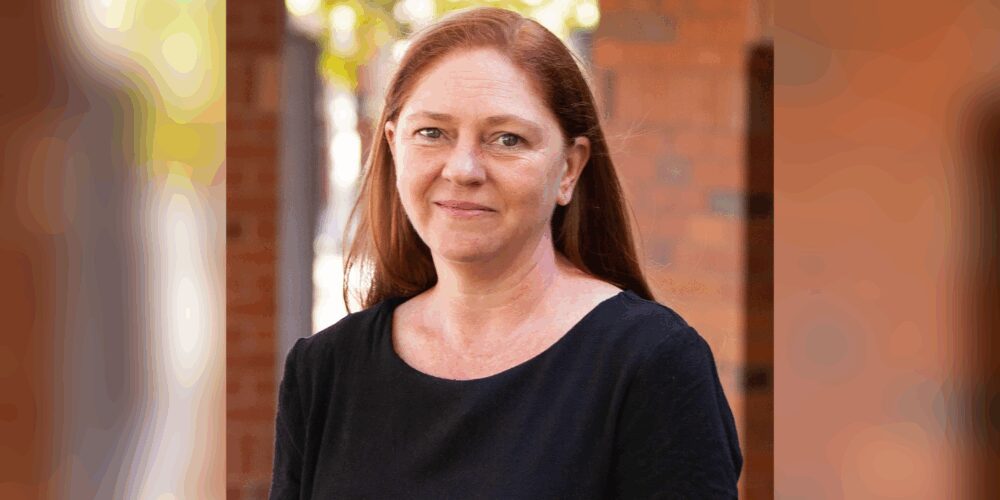Content warning: This article discusses suicide and self-injury.
University brings a chance to explore identity, forge friendships and discover new possibilities.
But for many, it also brings silent battles with stress, self-injury and suicide risk. One in three university students experience suicidal thoughts and behaviour, and nearly two-thirds report symptoms of mental health disorders such as depression and anxiety.
John Curtin Distinguished Professor Penelope Hasking from the Curtin enAble Institute and Curtin School of Population Health said the transition from high school to university life can be an exciting but also challenging time for many young people.

“Not all university students come straight from high school, but those who do are often entering a phase of adulthood where they’re trying to make sense of who they are, what they want to be, and where they fit in.”
“For some, it’ll be the first time they live outside of home or feel the pressure of combining study with paid work – around 75% of students are working while they study.”
“When you add financial, academic, and social strain together, it creates a perfect storm. It’s no surprise that we see such high levels of distress among students.”
Professor Hasking’s research focuses on youth mental health. For much of her early career, she was among the few who worked in the space of non-suicidal self-injury (NSSI). Although not engaged with suicide in mind, NSSI is the most reliable predictor of later suicidal behaviour.
“That’s how my work has shifted over time from understanding self-injury to suicide prevention. If we can recognise and respond earlier, we have a much better chance at saving lives,” Professor Hasking said.
Since 2016, Professor Hasking has led the Australian arm of the World Health Organisation’s (WHO) World Mental Health Surveys – International College Student Initiative, which seeks to collect cross-national data on the mental health of university students, identifying unmet needs and linking students with appropriate mental health services.
Guiding students to help with COMPAS
Professor Hasking is the project lead of Checking on Mental Health Providing Alternatives to Suicide (COMPAS) – a suicide prevention program helping to create safer campuses.
How does it work?
All first-year students are invited to complete an online questionnaire, which assesses their mental and physical health, as well as their social supports.
Their responses are then processed through the COMPAS algorithm, which identifies students who might be struggling.
“COMPAS is five times more accurate than current means of assessing suicide risk. When we built the algorithm, we didn’t just look at signs of mental illness or history of suicidal thoughts. We wanted a broader picture,” Professor Hasking said.
“That meant looking at things like social support, coping skills, and stressful life events. By combining these factors, the algorithm can flag students who might be at heightened risk of suicidal behaviour in the future.”
COMPAS then reach out to students who are flagged as at risk and provides support tailored to their needs.
“Mental health support is not one-size-fits-all. It looks different for everyone,” Professor Hasking said.
“For some, it might be a talk about how to get a mental health care plan to see a psychologist but for others, it might be pointing them toward social groups through the Student Guild.”
“We find that many students don’t know what’s available to them, or don’t feel comfortable talking about their mental health. Our role is to give students different options to explore and demystify mental health care. We want students to know that seeking help is not something to be ashamed of.”
COMPAS also partners with non-profit mental health organisations Beyond Blue, Lifeline WA and headspace to leverage findings from the program.
Creating safer campuses across the country
COMPAS has been rolled out to several universities across the country, with plans to be implemented in 14 Australian universities by 2026.
Since its inception, COMPAS has led to a 41.7% decrease in the likelihood of suicidal behaviour within a year of their first contact.
“Most students are not actively suicidal when we reach out,” Professor Hasking said.
“There is usually a combination of factors that we know statistically increase suicide risk down the track. Our goal is to support students before they reach a crisis point – to stop problems from escalating.”
Professor Hasking and the team are now hoping to roll COMPAS out to TAFEs across Western Australia.
The WA Government’s recent Fee-Free TAFE initiative is expected to drive significant growth in enrolments.
“TAFE students face many of the same challenges as university students, as well as others related to the unique TAFE environment. Furthermore, many will go on to work in industries with some of the highest suicide rates in the country, such as mining and construction,” Professor Hasking said.
“We want to equip students with the resources and skills they need early, so they can carry those supports into their working lives.”
Find out more about COMPAS on their website.
This piece was featured in Impact Focus – a quarterly newsletter bringing you the latest in Curtin research. Sign up here to get it delivered straight to your inbox!


